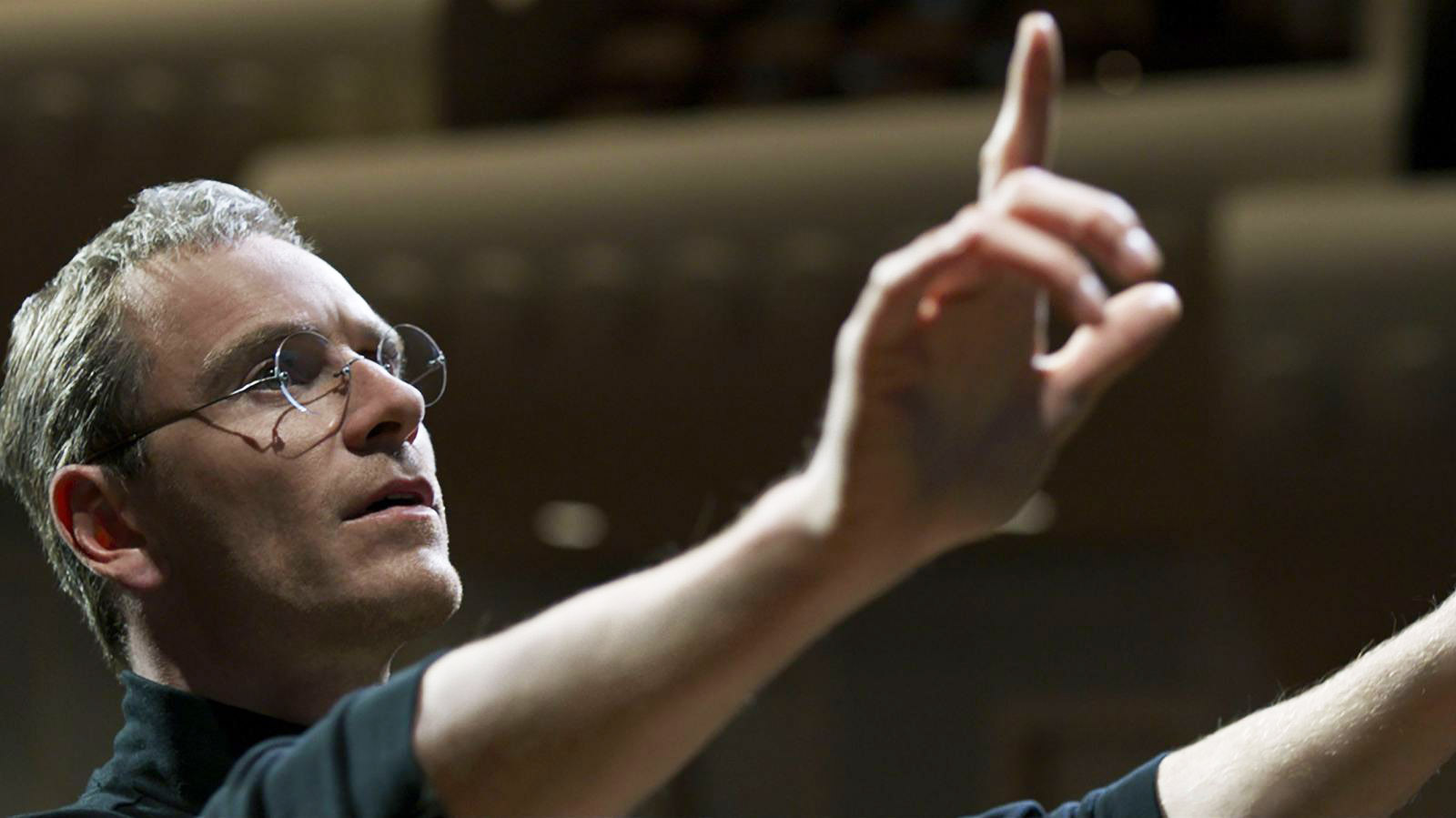Movie Review: ‘Steve Jobs’

(Universal Studios)
By Sebastian Torrelio
Oct. 14, 2015 7:28 a.m.
When Steve Jobs passed away in late 2011, the reaction to his illustrious and world-changing career was, to put it lightly, divisive. The world seems to acknowledge how Jobs helped advance computing technology to where it is today, but recognizes that perhaps he didn’t use the most honorable corporate methods as co-founder of Apple Inc.
For very similar reasons to Jobs’ actual career, “Steve Jobs” is both incredible and flawed. Director Danny Boyle and screenwriter Aaron Sorkin’s carefully studied film is as interesting as it is stupefying – an experimental biopic that avidly tries to be as un-biopic as possible.
“Steve Jobs” will be a divisive film that bears with it a response of jarring appreciation, a film that will change the way these characters, the actors who portray them and biographical pictures are approached for the foreseeable future.
Taking place chronologically at three moments in the history of Apple Inc., the film is effectively divided into three acts: the unveiling of the original Macintosh computer in 1984, Jobs’ spin-off NeXT Computer in 1988 and the release of the iMac in 1998. Each act is nearly identical in structure and in conflict – Jobs (Michael Fassbender) is accompanied by his confidant Joanna Hoffman (Kate Winslet) in preparing to show their new product in a packed auditorium press show.
Moments before he takes the stage, Jobs faces a number of individuals who all have immediate problems for him to address: Steve Wozniak (Seth Rogen), CEO John Sculley (Jeff Daniels) and computer scientist Andy Hertzfeld (Michael Stuhlbarg) approach him to discuss the company and imminent presentation, while his former girlfriend Chrisann Brennan (Katherine Waterston) confronts him about giving his daughter a fulfilling life.
The most brilliantly unorthodox aspect of the film comes from Boyle’s decision to shoot the film in three different formats. The 16 mm and 35 mm film used for 1984 and 1988, respectively, contrast strikingly with the digital cameras used to film the final scenes in 1998. In this way, “Steve Jobs” carries with it a stark feeling of passing time that emboldens the modernity of each successive act as the film’s resolution grows progressively crisper.
Despite how quickly time passes on screen, however, the characters themselves remain resolutely the same. Fassbender gives the most convincing performance of his career, wholly embodying Jobs’ mannerisms and rigidly stubborn ideology. Perhaps even more impressive are the actors who hold their own against his unflinching verbal assaults. Rogen and Winslet are terrific and heartbreaking in their characters’ efforts to fight Jobs’ refusal to respect those in his life who deserve it.
The resulting repetition of aggravated co-workers bouncing insults off one another underlines the movie’s most resounding flaw: Sorkin has created a fictional Jobs that is more cruel and contemptible than he is captivating. More so, arrogance is the one character trait that Jobs runs off of in the film, and often the only thing that keeps the story running. Any other commentary that “Steve Jobs” might make about the man is done indirectly, like how his daughter is a physical embodiment of Jobs’ determined curiosity.
Granted, Jobs’ unsavory demeanor also keeps the story exciting, since “Steve Jobs” is essentially the tirade of a genius trying to make history. But in doing so, Boyle’s film lacks a lot of substance that it might have had if it weren’t for Sorkin’s brash script. With a few exceptions, the characters in this movie are trapped within bubbles of eternal dispute. Actors have won awards and garnered acclaim for playing jerks in the past, but Fassbender’s minimalist Jobs is a master class on hands-in-pockets bullheadedness.
When Sorkin teamed up with David Fincher to make his magnum opus, “The Social Network,” it worked magnificently because both filmmakers let their temperament shine at precisely the right moments. Sorkin, as much of a genius as he is, overshadows Boyle so heavily on “Steve Jobs” that it’s hard to call it a masterpiece. Perfectly enough, it makes “Steve Jobs” a theatrically entertaining war of sharp, overwhelming mentalities both on screen and off.
If history has made anything of Steve Jobs, it’s that his achievements may not have been accompanied with rightful dues to the proper collaborators. But even beyond the grave, Jobs would never let his fearless intellect go unrecognized. “Steve Jobs” shines in the same audacious light as the legend it honors – even if “honoring” wouldn’t be the way Jobs himself would put it.
– Sebastian Torrelio


